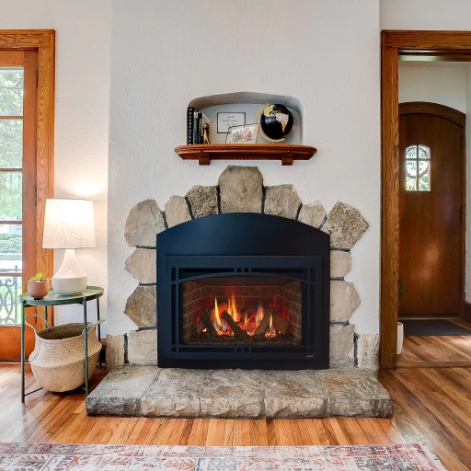Table of Contents
- 1 What Are Garage Doors?
- 2 What Are the Standard Sizes for Garage Doors?
- 3 What Are the Factors to Consider When Choosing the Right Size Garage Door?
- 4 What Are the Different Types of Garage Doors?
- 5 What Are the Materials Used for Garage Doors?
- 6 How Do You Measure for a Garage Door?
- 7 What Are the Steps to Install a Garage Door?
- 8 Frequently Asked Questions
Garage doors are an essential feature of any home, providing security and convenience for your vehicles and belongings. With so many options available, it can be overwhelming to choose the right size and type for your needs.
We explore the standard sizes for garage doors, including single, double, and RV garage doors, and discuss factors to consider when selecting the right size, such as the size of your vehicles, available space, and the purpose of your garage.
This article will examine different types of garage doors, including roll-up, sectional, side-hinged, and tilt-up doors, as well as materials commonly used, such as wood, steel, aluminum, fiberglass, and vinyl. We provide a step-by-step guide on how to measure for a garage door and the installation process.
Whether you are building a new home or upgrading your current garage, this comprehensive guide will help you make an informed decision when selecting and installing the perfect garage door for your needs.
What Are Garage Doors?
Garage doors are essential components of both residential and commercial properties, offering a variety of options for functionality and aesthetics. They come in various designs and styles, ranging from traditional raised panel doors to modern sleek aluminum options. The installation process for these doors can vary depending on the type chosen, highlighting the importance of professional expertise for a seamless fit. Materials such as steel, wood, and fiberglass are commonly used, offering a balance of durability and style. The choice of garage door can significantly impact the overall curb appeal and property value, making it a crucial decision for homeowners and business owners alike.
What Are the Standard Sizes for Garage Doors?
Garage doors come in various standard sizes to accommodate different types of vehicles and garage configurations, with common dimensions for single-car, double-car, and triple-car garages.
- For a single-car garage, standard sizes typically range from 8 to 9 feet in width and 7 to 8 feet in height.
- In contrast, double-car garage doors usually measure around 16 feet in width and 7 to 8 feet in height.
- For those with triple-car garages, the standard dimensions can span up to 24 feet in width and 7 to 8 feet in height.
These sizes ensure that vehicles can easily enter and exit the garage space without any hindrances.
Single Garage Doors
Single garage doors are designed to accommodate one car and typically have a standard width and height suitable for most vehicles.
The standard width for a single garage door is usually 8 to 9 feet, with the height ranging from 7 to 8 feet. These dimensions ensure that a wide variety of cars, from compact vehicles to SUVs, can easily fit through.
Single garage doors are commonly made from materials such as steel, wood, or aluminum, offering durability and security. Homeowners can also opt for customization options, including different panel designs and colors, to enhance the overall aesthetic of their garage.
Double Garage Doors
Double garage doors are ideal for two-car garages, offering a wider opening and higher clearance to accommodate larger vehicles.
The standard width of double garage doors typically ranges from 12 to 18 feet, providing ample space for two vehicles side by side. These doors come in various heights, commonly around 7 to 8 feet, ensuring that SUVs, trucks, and other taller vehicles can easily enter and exit the garage.
When it comes to material, double garage doors are often constructed from durable steel or wood for both aesthetics and functionality. Installation of these doors may require professional assistance to ensure proper alignment and functionality over time.
RV Garage Doors
RV garage doors are specially designed to accommodate larger vehicles such as recreational vehicles, with increased width and height to provide easy access and secure storage.
Customization options for RV garage doors allow owners to tailor the doors to their specific needs, ensuring a perfect fit for their oversized vehicles. The durability of these doors is key, as they are built to withstand the weight and size of RVs, offering long-term reliability and protection.
The extra width and height of RV garage doors make them ideal for smoothly maneuvering large vehicles in and out, eliminating the hassle often associated with traditional garage doors. With these unique features, RV garage doors offer a practical solution for those needing to park and store their RVs safely.
What Are the Factors to Consider When Choosing the Right Size Garage Door?
Selecting the appropriate size garage door involves considering factors such as the size of vehicles, available space in the garage, and the intended purpose of the garage.
When determining the ideal garage door size, matching it with the vehicle dimensions is crucial to ensure smooth entry and exit. Customization options come into play here, allowing you to tailor the door to fit your specific needs.
Before installation, accurate measurements need to be taken to guarantee a seamless fit. Space constraints must be taken into account to maximize the functionality of the garage. Whether it’s for a single car or multiple vehicles, choosing the right size door is essential for ease of use and overall aesthetic appeal.
Size of Vehicles
Determining the size of vehicles that will use the garage is crucial in selecting the right garage door dimensions to ensure proper fit and functionality.
The dimensions of vehicles play a significant role in dictating the required garage door size. When measuring for a garage door, it is important to account for the width, height, and depth of the largest vehicle or equipment that will be stored inside.
Compatibility considerations, such as the amount of clearance needed for opening the garage door, also influence the choice. Material options for garage doors, ranging from steel to wood, can impact installation and customization possibilities to accommodate different vehicle sizes and entry requirements.
Available Space
Assessing the available space in the garage is essential for determining the feasible dimensions and configuration of the garage door to maximize functionality and convenience.
A key consideration when choosing a garage door is the installation challenges that may arise due to space constraints. It’s important to select a door that can be smoothly installed within the allotted space while allowing for efficient operation.
Customization possibilities also play a significant role in ensuring that the door fits seamlessly into the overall design of the garage. Material options, such as steel, wood, or aluminum, not only impact the door’s durability but also influence its style and aesthetic appeal.
By carefully evaluating these factors, homeowners can choose a garage door that not only meets their practical needs but also enhances the visual appeal of their property.
Purpose of the Garage
Considering the intended purpose of the garage, whether for vehicle storage, workspace, or recreational use, helps determine the suitable garage door features that align with the user’s needs.
For instance, if the garage primarily serves as a workspace, functionality becomes paramount, necessitating a door with insulation to maintain a comfortable environment throughout the year.
On the other hand, if security is a top concern, opt for a door with robust locking mechanisms and advanced security features to safeguard valuable items stored inside.
Aesthetic appeal also plays a role, especially if the garage is visible from the street, where a well-designed door can enhance the overall curb appeal of the property.
What Are the Different Types of Garage Doors?
Garage doors come in various types, including roll-up, swing-out, tilt-up, and automatic options, each offering unique features and benefits.
- Roll-up garage doors operate vertically, rolling into a compact coil above the opening, ideal for maximizing overhead space.
- Swing-out doors swing open like traditional carriage doors, adding a classic aesthetic to homes.
- Tilt-up doors, on the other hand, consist of a single panel that tilts up and slides into the garage ceiling.
- Automatic garage doors, equipped with motors and sensors, provide convenient operation with just a push of a button, perfect for modern lifestyles.
Roll-up Garage Doors
Roll-up garage doors operate by vertically rolling into a compact coil above the opening, providing convenient overhead access and space-saving functionality.
This design allows roll-up garage doors to maximize overhead clearance, making them an ideal choice for garages with limited space. Their automatic operation adds a layer of convenience by allowing users to open and close the doors with the push of a button, eliminating the need for manual labor.
Not only do roll-up doors offer enhanced security features, but their insulation properties also help regulate temperature within the garage, resulting in energy efficiency and cost savings. The durability of these doors ensures long-lasting performance, providing homeowners with a reliable and low-maintenance garage door solution.
Sectional Garage Doors
Sectional garage doors consist of horizontal panels that slide up into the ceiling space, offering excellent insulation properties and seamless overhead operation.
These doors are constructed using durable materials such as steel, aluminum, or wood, providing a sturdy structure that enhances security and adds to the curb appeal of a home. The insulation in sectional doors helps regulate indoor temperatures, keeping the garage space comfortable all year round. With various style options available, homeowners can choose a design that complements the overall aesthetic of their property. Customization options such as window inserts and decorative hardware allow for a personalized touch to the garage door’s appearance.
Side-hinged Garage Doors
Side-hinged garage doors swing open outward on hinges, providing a classic and traditional aesthetic that complements various architectural styles.
The swing-out operation of these doors offers a unique and charming alternative to traditional overhead garage doors. Homeowners who appreciate a vintage or rustic look often opt for side-hinged doors, as they can be crafted from a variety of materials such as wood or aluminum, allowing for a personalized touch. With endless customization possibilities, from window inserts to hardware finishes, these doors can be tailored to suit any home’s style and enhance its curb appeal.
Tilt-up Garage Doors
Tilt-up garage doors pivot outward and upward to open, offering a manual operation that allows for customization in terms of design and material choices.
These doors are known for their versatility in materials, ranging from steel to wood, catering to different preferences and architectural styles. The customization options extend to color choices, window inserts, and decorative hardware, allowing homeowners to personalize their garage doors to suit the overall aesthetic of their property.
In terms of maintenance, tilt-up doors are relatively easy to upkeep, often requiring simple inspections and occasional lubrication to ensure smooth functioning. While repair costs may vary depending on the complexity of the issue, the initial installation cost of tilt-up garage doors is generally seen as a worthwhile investment for their durability and visual appeal.
What Are the Materials Used for Garage Doors?
Craftsmen can make garage doors from various materials such as wood, steel, aluminum, fiberglass, and vinyl, each offering distinct characteristics in aesthetics and durability.
Wooden garage doors offer a timeless, elegant appeal and allow for customization to match different architectural styles.
Conversely, steel doors are popular for their durability and security features, making them an excellent choice for regions prone to extreme weather conditions.
Aluminum doors are lightweight yet sturdy, perfect for coastal areas due to their resistance to corrosion.
Fiberglass doors offer a modern look and excellent insulation, ideal for energy-efficient homes.
Vinyl doors are low-maintenance, weather-resistant, and come in various colors and styles to suit diverse design preferences.
Wood
Wooden garage doors exude a classic charm and timeless appeal, adding a touch of warmth and sophistication to residential properties.
People highly seek these doors for their natural beauty and their ability to complement various architectural styles. From rustic farmhouse designs to modern urban aesthetics, you can customize wood garage doors to match the specific look and feel of a home.
While their aesthetic appeal is undeniable, it’s essential to note that wooden doors require regular maintenance to preserve their beauty and functionality. Regular staining or painting can help protect the wood from the elements and prolong its lifespan, ensuring that your garage maintains its curb appeal for years to come.
Steel
Steel garage doors earn renown for their durability and security features, offering robust protection and low maintenance requirements for both residential and commercial applications.
The sturdy construction of steel garage doors makes them highly resistant to dents and scratches, ensuring a long-lasting exterior that can withstand various weather conditions. The insulation properties of steel help maintain a consistent temperature inside the garage, reducing energy costs. Reputable brands often offer a comprehensive warranty on their steel doors, giving homeowners peace of mind knowing they are making a sound investment in the security and functionality of their property.
Installation of steel garage doors is relatively straightforward, making them a practical choice for many consumers.
Aluminum
Aluminum garage doors offer a lightweight and modern design aesthetic, making them ideal for contemporary properties seeking a sleek and minimalist look.
The customization options available further enhance their appeal, allowing homeowners to tailor their garage doors perfectly to suit their style preferences. With the advancement of technology, many aluminum garage doors come equipped with remote control and smart features, providing added convenience and security. The corrosion-resistant properties of aluminum make these doors durable and long-lasting, requiring minimal maintenance. These doors are also energy-efficient, helping to regulate the temperature inside the garage and contribute to overall energy savings for the household.
Fiberglass
Fiberglass garage doors stand out for their weather-resistant properties and excellent insulation capabilities, offering a durable and energy-efficient solution for various climates.
This type of garage door requires minimal maintenance compared to other materials, making it a cost-effective choice in the long run. Fiberglass doors offer a wide range of customization options, allowing homeowners to match the style and color to their home’s exterior. Due to their resilience to harsh weather conditions, fiberglass garage doors are ideal for regions prone to extreme temperatures or high humidity levels, offering reliable performance without compromising energy efficiency.
Vinyl
Vinyl garage doors are popular for their maintenance-free nature and customizable design options, offering a practical and versatile solution for homeowners looking for easy-to-care-for doors.
Their durability and resistance to dents, scratches, and fading make them particularly known and ideal for high-traffic areas. These doors not only provide security for your garage but also enhance the overall style and curb appeal of your home.
With a wide range of colors and styles to choose from, homeowners can easily find a vinyl garage door that complements their property’s aesthetics. The low-maintenance aspect of vinyl garage doors saves homeowners time and effort in upkeep while still achieving a sleek and polished look.
How Do You Measure for a Garage Door?
Measuring for a garage door involves assessing the opening dimensions, including width and height, to ensure a proper fit and seamless installation process.
When measuring for a garage door, it’s crucial to consider clearance requirements to guarantee smooth operation and prevent any obstructions. Take into account the needed insulation level to enhance energy efficiency and temperature control within your garage. Remember to factor in security features like the type of lock system you prefer.
These measurements will not only determine the size of the door needed but also influence the overall look and functionality of your garage. Prioritize accuracy to ensure a successful installation process.
What Are the Steps to Install a Garage Door?
Installing a garage door involves several key steps, whether opting for a DIY approach or hiring professional installers to ensure a safe and efficient setup.
When considering a DIY installation, it’s crucial to carefully read through the manufacturer’s instructions before beginning. Start by assembling all the necessary tools and hardware to avoid interruptions during the process. Begin by removing the old door if replacing it, ensuring to disconnect any electrical connections safely.
During the installation, pay close attention to the alignment of tracks, rollers, and hinges to ensure smooth operation. For those opting for professional installation, it’s essential to research reputable companies known for their expertise in garage door installations. Discuss customization options for an upgraded look and consider scheduling routine maintenance to prolong the lifespan of your new garage door.
Frequently Asked Questions
1. What standard sizes are available for residential garage doors?
Standard residential garage doors typically come in widths of 8, 9, 10, 12, 14, and 16 feet. The most common height for garage doors is 7 feet, accommodating most vehicles. However, taller doors are available for special needs, such as 8-foot and 9-foot heights for taller vehicles or RVs.
2. How do I determine the right size garage door for my home?
To choose the right size garage door, first, consider the size of your vehicles and the garage’s interior space. Measure the width and height of your garage opening. Allow for extra space if you plan to store large vehicles or equipment. Consulting with a professional can also provide guidance based on your specific needs and the architectural style of your home.
3. Can I customize the size of a garage door if standard sizes don’t fit my garage?
Yes, many manufacturers offer custom-sized garage doors. If your garage has non-standard dimensions, you can have a custom door made to fit precisely. This might involve a higher cost and longer lead times for manufacturing. As a result, it ensures a perfect fit and proper operation.
4. Are there different size considerations for single, double, and RV garage doors?
Yes, single garage doors typically range from 8 to 10 feet wide for standard vehicles. Double garage doors are wider, usually around 16 feet, to accommodate two vehicles side by side. RV garage doors are taller, with heights up to 12 feet to fit recreational vehicles. Always verify the exact measurements needed for your specific vehicle types.
5. What factors should I consider when selecting the size for a new garage door?
Consider factors such as the types of vehicles you own, the intended use of the garage space, and future needs. Also, take into account the architectural design of your home and any homeowners association guidelines that may apply.
6. How can I accurately measure my garage opening for a new garage door?
First, measure the width of the opening at the widest point. Next, measure the height from the floor to the highest point of the opening. Finally, measure the headroom above the opening to the ceiling. Also, measure the sideroom — the space available on either side of the door opening. You should double-check these measurements for accuracy.
Latest Articles

What Is An NG (Natural Gas) Indicator And Why You Need It For Your Fireplace
Table of Contents1 Understanding Natural Gas Fireplaces2 What is an NG Indicator?3 Importance of NG Indicators for Safety4 Types of NG Indicators5 Installation and Maintenance of NG Indicators6 Signs of a Faulty NG Indicator7 Frequently Asked Questions Natural gas fireplaces are a favored option among numerous homeowners due to their convenience and effectiveness. But, what is an NG (Natural Gas) indicator and why you need it for your fireplace? It is imperative to comprehend how they function and the significance of having an NG (Natural Gas) indicator for safety purposes. This article delves into the definition and significance of NG indicators. We will discuss the potential hazards associated with the absence of one and the various types of indicators accessible. Also, we will discuss installation and maintenance recommendations, and methods to recognize and rectify issues with malfunctioning indicators. Stay well-informed and ensure the safety of your home by referring to this exhaustive guide. Understanding Natural Gas Fireplaces Natural gas fireplaces serve as an efficient and convenient heating option for numerous households. They utilize natural gas as a fuel source to deliver consistent warmth and ambiance. How They Work and Why They Need NG Indicators The operation of natural gas fireplaces involves igniting natural gas to generate heat. This process requires diligent monitoring to ensure both safety and efficiency, a task facilitated by the use of NG indicators. NG indicators play a critical role in detecting potential gas leaks. They enable residents to promptly address and mitigate any associated hazards. Through continuous monitoring of gas levels and providing timely warnings and alerts, NG indicators uphold a secure indoor environment. It is imperative to ensure that these indicators function properly to facilitate the effective operation of natural gas fireplaces. This helps mitigate the inherent risks linked to gas leaks. What is an NG Indicator? An NG indicator is a specialized device equipped with advanced sensors and technology. It is specifically designed to detect natural gas leaks and monitor gas pressure in appliances, such as fireplaces. Definition and Purpose The NG indicator functions as a detector that monitors gas appliances for potential leaks. It provides essential functionality to ensure safety in households utilizing natural gas. These detectors play a crucial role in protecting residences by notifying occupants of dangerous gas leaks long before they escalate into perilous situations. Through continuous monitoring of gas levels in the vicinity, NG indicators offer an additional layer of protection. This is particularly important in properties that rely on gas-operated fireplaces or stoves. These devices not only help avert potential disasters but also enhance the overall peace of mind of homeowners. They assure them that their living spaces are equipped with reliable safety features. Importance of NG Indicators for Safety Natural gas indicators are essential for maintaining safety in households equipped with natural gas appliances. These devices serve as a proactive measure to promptly detect gas leaks. This offers homeowners a sense of security and assurance. Potential Dangers of Not Having an NG Indicator The absence of an NG indicator in residences equipped with natural gas appliances can pose significant hazards. This includes the risk of undetected gas leaks , carbon monoxide poisoning , and pilot outages that may lead to dangerous situations. These potential risks can profoundly impact indoor air quality. They directly influence the health and safety of individuals residing in the household. Undetected gas leaks can go unnoticed, gradually permeating the air and creating a potentially explosive environment. Insufficient ventilation from undetected exposure to carbon monoxide can lead to serious health complications. These range from mild symptoms such as dizziness to fatal poisoning. Without proper monitoring from an NG indicator, families are left susceptible to these concealed threats. This underscores the critical importance of implementing proactive measures to mitigate such risks. Types of NG Indicators Indicators for Natural Gas (NG) are available in diverse types. Each presents distinct detection capabilities tailored to specific requirements, encompassing both manual and automated alternatives. Manual vs. Automatic Indicators Manual NG indicators require user intervention for monitoring gas levels and identifying leaks. On the other hand, automatic indicators employ sophisticated technology to deliver continuous, real-time monitoring. This heightened efficiency and oversight enhance safety protocols. Conventional manual indicators rely on individuals to physically inspect and evaluate gas levels periodically. This renders them more susceptible to human errors. Conversely, automatic indicators feature sensors capable of promptly detecting even the most minute fluctuations in gas levels. This establishes a more dependable and precise monitoring mechanism. Automatic indicators can activate alerts and shut-off systems upon detecting a leak. This ensures immediate action to avert potential hazards. This advanced technology enhances safety protocols and instills a sense of command and assurance among users. Installation and Maintenance of NG Indicators The reliable and accurate performance of NG indicators necessitates proper installation and consistent maintenance. This often entails professional installation and adherence to recommended service guidelines. Proper Installation and Regular Maintenance Tips The proper installation of NG indicators involves adhering to the specifications in the user manual. Maintenance protocols entail strict adherence to a predetermined maintenance schedule to ensure sustained operational efficiency. During the installation phase, it is imperative to verify that the NG indicators are securely affixed in the designated location as stipulated by the manufacturer. Crucial steps include confirming power source compatibility and ensuring proper grounding of the device to optimize performance. Calibration of the indicator must be executed meticulously to ensure precise readings. Regarding maintenance, essential practices include regular inspection for signs of wear, thorough cleaning of the indicator components, and routine functionality tests. By allocating time to a consistent maintenance regimen, the NG indicator can operate with optimal efficiency over an extended duration. Signs of a Faulty NG Indicator Recognizing indicators of a malfunctioning NG indicator is essential for upholding safety and performance standards. Inaccuracies and detection issues can undermine the efficacy of these devices. Identifying and Addressing Issues The process of identifying and addressing issues related to NG (natural gas) indicators requires a systematic troubleshooting approach. This ensures their optimal performance

What You Need To Know About Gas Log Set Safety And Installation Considerations
Table of Contents1 Understanding Gas Log Sets2 Safety Considerations for Gas Log Sets3 Installation Guidelines for Gas Log Sets4 Maintaining and Troubleshooting Gas Log Sets5 Frequently Asked Questions Gas log sets are a favored option among homeowners seeking to enjoy the comfort and atmosphere of a conventional fireplace without the inconvenience of wood. This article tells you what you need to know about gas log set safety and installation considerations. Before incorporating one into your residence, it is imperative to understand the safety considerations associated with their use. This discussion delves into the potential hazards linked with gas log sets. It presents crucial precautions to uphold the safety of your home. Also, it outlines proper installation procedures and offers insight into common errors to avoid. Finally, it provides advice on maintenance and troubleshooting. Gain comprehensive knowledge on gas log set safety and installation considerations. Understanding Gas Log Sets Comprehending gas log sets is essential for individuals seeking to elevate their fireplace experience, and for gas lag set safety and installation. These heating appliances can operate on either natural gas or propane. In addition, they are available in a range of styles, including vented, ventless, and vent-free options. They provide an array of benefits and customization opportunities through various fireplace accessories. What are Gas Log Sets? Gas log sets are meticulously crafted artificial logs. They are designed to imitate the appearance and functionality of authentic wood logs within fireplaces. These gas log sets typically consist of ceramic or refractory concrete logs that have been skillfully molded and painted. This allows them to replicate the natural grain and texture of real wood. The logs are arranged in various configurations within the fireplace. They establish a realistic and welcoming ambiance. In addition to the logs, gas log sets often include fireplace accessories such as glowing embers. Accessories also include decorative stones, and even pine cones to enhance the overall aesthetic appeal. Homeowners can select from an array of placement options. These include traditional wood stack, cascading driftwood, or a contemporary geometric arrangement. Homeowners can align their preferred style and design preferences. Safety Considerations for Gas Log Sets Safety considerations for gas log sets are of utmost importance to guarantee a secure and pleasant fireplace experience. It is essential to address potential hazards such as carbon monoxide exposure, gas leaks, and fire safety to maintain a safe environment for homeowners. Potential Hazards and Precautions Gas log sets come with potential hazards that must be taken seriously, including the risks of gas leaks, carbon monoxide poisoning, and fire incidents. It is imperative to establish and adhere to rigorous safety measures to ensure the well-being of individuals and properties involved in the use of gas log sets. Gas leaks represent a significant hazard when utilizing gas log sets. They can result in the accumulation of combustible gas within the premises, heightening the possibility of explosions or fires. Carbon monoxide, an insidious gas generated during incomplete combustion, poses a grave threat due to its colorless and odorless nature, making it undetectable without proper monitoring. To address these risks effectively, it is vital to install carbon monoxide detectors and gas leak sensors in the vicinity of the gas logs. Routine maintenance checks on the gas log system, including cleaning and inspection procedures, are critical to ensure safe operations and the prompt identification of potential issues. In case of a gas leak or suspected presence of carbon monoxide, immediate evacuation of the affected area is paramount, followed by prompt contact with emergency services. Recognizing the distinct odor of rotten eggs associated with natural gas can serve as an early warning sign, prompting swift actions to avert any potential accidents. Installation Guidelines for Gas Log Sets The installation of a gas log set necessitates meticulous planning and strict adherence to specific guidelines. This includes verifying a secure gas connection, ensuring proper gas lines are in place, and complying with local building codes. Often, the complexity of these requirements may require the expertise of a certified technician. Proper Installation Techniques The appropriate installation procedures for gas log sets involve the secure connection of gas lines, meticulous adherence to installation manuals, and strict compliance with local building codes. It is imperative to prioritize the guarantee of secure gas connections to avert leaks and potential safety hazards. During the installation of gas log sets, utilizing suitable sealants and fittings is essential to establish a tightly sealed connection. The correct installation of gas lines is critical for both the safety and operational efficacy of the gas log set. Reference to the installation manual is highly advisable for detailed, step-by-step guidance to prevent inaccuracies and ensure the successful establishment of the gas log set. Consistently adhering to building codes and regulations upholds safety standards. Seeking guidance and confirmation from a certified technician before and after installation can offer invaluable support and assurance throughout the process. Common Installation Mistakes to Avoid It is imperative to avoid common installation errors to ensure the secure and effective operation of gas log sets. This includes verifying proper gas connections and compliance with building codes. Improper gas connections can result in leaks and potential hazards, underscoring the importance of verifying the tightness and correct alignment of all fittings. Failure to adhere to building codes can lead to structural complications, penalties for non-compliance, or even safety concerns. To prevent these oversights, it is advised to consult the manufacturer’s installation guidelines and strictly adhere to local regulations. Engaging a certified technician for the installation of gas log sets guarantees that the procedure is carried out accurately and securely. This provides assurance that the system is functioning as intended. Maintaining and Troubleshooting Gas Log Sets Regular maintenance and troubleshooting of gas log sets are imperative to uphold their optimal performance and safety. This includes thorough examination of the pilot light, pilot assembly, and other gas appliances to preserve heating efficiency and promptly resolve any arising issues. Tips for Maintenance and Repair Ensuring the proper maintenance of your gas log set necessitates conducting

Key Considerations For Using Compressed Liquid Propane In Fireplace Installation
Table of Contents1 What is Compressed Liquid Propane?2 Benefits of Using Compressed Liquid Propane in Fireplaces3 Safety Precautions for Installing Compressed Liquid Propane Fireplaces4 Installation Process for Compressed Liquid Propane Fireplaces5 Maintenance and Care for Compressed Liquid Propane Fireplaces6 Alternative Fuel Options for Fireplaces7 Frequently Asked Questions If you are contemplating the use of compressed liquid propane in your fireplace installation, this discussion will delve into the advantages of adopting this alternative fuel option. These benefits include enhanced efficiency, cost savings, and important safety precautions to consider. Furthermore, a detailed step-by-step guide on the installation process will be provided, along with recommendations for maintenance and care. A comparison of various fuel options for fireplaces will also be conducted to assist you in making an informed decision. We encourage you to stay engaged to gain insights into optimizing your fireplace’s capabilities with compressed liquid propane. What is Compressed Liquid Propane? Compressed Liquid Propane is a versatile energy source contained in a high-pressure propane tank. It finds extensive utility in both residential and commercial settings, prominently including fireplaces. Recognized for its convenience and efficiency, Compressed Liquid Propane emerges as a favored option for heating residential spaces and facilitating culinary pursuits across various environments. Additionally, it serves as a viable fuel substitute in vehicular contexts, portable cooktops, and outdoor grilling scenarios due to its propensity for clean combustion. The attribute of portability, coupled with ease of storage, positions Compressed Liquid Propane as an optimal energy source for individuals residing off the conventional grid. It is also great for engaging in outdoor activities such as camping and recreational vehicle (RV) travel. Moreover, the high energy density inherent to Compressed Liquid Propane renders it a dependable choice for sustaining generators during instances of power disruptions. Benefits of Using Compressed Liquid Propane in Fireplaces Utilizing Compressed Liquid Propane for fireplace installation presents several benefits. These include enhanced fuel efficiency, convenience, cost-effectiveness, and a favorable environmental footprint. These attributes render it a recommended option for heating solutions, applicable to both on-grid and off-grid settings. Efficiency and Cost Savings The utilization of Compressed Liquid Propane in fireplaces offers significant advantages, notably in terms of high fuel efficiency and cost-effectiveness. These attributes are underscored by the exceptional BTU rating and overall heating efficiency of Compressed Liquid Propane. The elevated fuel efficiency exhibited by Compressed Liquid Propane fireplaces necessitates less fuel to generate the same level of heat compared to traditional wood-burning fireplaces or electric heating systems. Consequently, homeowners can realize cost savings on their heating expenditures over an extended period. Moreover, the clean-burning characteristics of propane minimize maintenance costs linked to soot and ash cleanup. This further enhances the cost-effectiveness of employing propane fireplaces. Safety Precautions for Installing Compressed Liquid Propane Fireplaces Ensuring safety is of utmost importance during the installation of Compressed Liquid Propane fireplaces. This requires strict adherence to safety regulations, meticulous attention to proper ventilation requirements, careful control of ignition sources, and the incorporation of carbon monoxide and gas leak detection systems. Important Safety Measures Essential safety protocols for the installation of Compressed Liquid Propane fireplaces encompass adherence to fire safety regulations. Engaging in professional assessments and employing sophisticated gas leak and carbon monoxide detection mechanisms is crucial. Professional evaluations play a critical role in identifying any prospective hazards or irregularities within the fireplace infrastructure. These assessments are vital in ensuring the operational integrity of all components and compliance with safety protocols. Routine inspections serve to forestall potential fire incidents, gas discharges, or carbon monoxide emissions that could pose significant threats to both the property and individuals in the vicinity. The utilization of advanced gas leak and carbon monoxide detection systems serves as an additional safeguard by promptly notifying occupants of any elevated levels of these hazardous gases. Installation Process for Compressed Liquid Propane Fireplaces The installation procedure for Compressed Liquid Propane fireplaces encompasses several critical steps. These include: Adhering to installation guidelines Correctly positioning the propane tank Ensuring precise gas line installation Optimizing heat output Monitoring pressure regulation Establishing the pilot light Step-by-Step Guide The installation process of Compressed Liquid Propane fireplaces involves a systematic approach. This begins with the construction of the firebox, followed by the installation of the gas control valve, setup of the ignition system, design of the flue, and verification of a suitable combustion air supply. The construction of the firebox assumes critical importance as it serves as the foundation of the fireplace structure. It securely holds the combustible materials in place. Subsequently, the gas control valve plays a key role in managing the propane flow, guaranteeing safe and efficient operation. The installation of the ignition system facilitates convenient and reliable fire initiation. Designing the flue is a necessary step to direct exhaust gases outside, thus preventing their accumulation indoors. Moreover, ensuring a proper combustion air supply is essential to sustain optimal burning conditions and enhance fuel consumption efficiency. Each component contributes significantly to the functionality and safety of the fireplace installation process. This underscores the importance of meticulous attention to detail and adherence to established protocols. Maintenance and Care for Compressed Liquid Propane Fireplaces Consistent maintenance and attention to Compressed Liquid Propane fireplaces are imperative to guarantee their optimal functionality. This includes adherence to prescribed maintenance protocols, regular chimney upkeep, prevention of soot accumulation, and scheduling of routine propane deliveries and professional inspections. Tips for Keeping Your Fireplace in Good Condition For the maintenance of your Compressed Liquid Propane fireplace, it is essential to conduct regular checks on ignition sources. Monitor flame appearance, clean the gas burner and pilot assembly, and verify the correct operation of the safety shut-off valve. The inspection of ignition sources requires a detailed examination of the electronic igniter. This helps identify any signs of damage or corrosion and ensures proper sparking upon activation. Monitoring flame appearance involves observing a consistent blue flame with minimal flickering, which signifies efficient combustion. Cleaning the gas burner and pilot assembly can be performed using a soft brush or compressed air to eliminate any dirt or debris that may


















































































